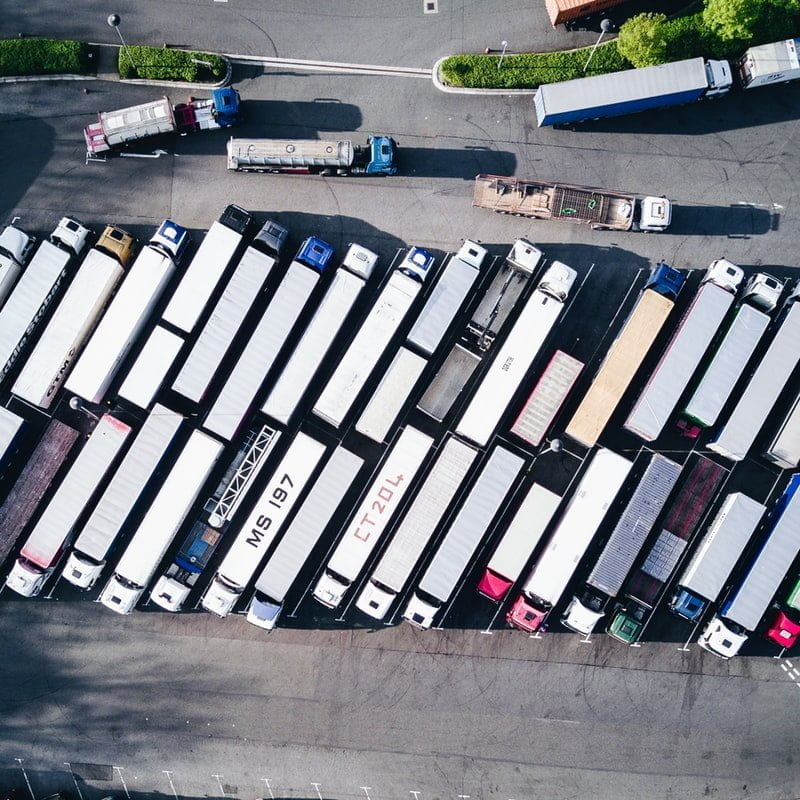Eighteen European companies and organisations launch the European Clean Trucking Alliance to call for zero-emission trucks
A newly-formed coalition of European key players in road freight, including POLIS, urges the EU to accelerate the transition to clean trucks in order to meet the emission targets of the proposed EU Climate Law by 2030 and achieve a carbon-neutral Europe by 2050.
Eighteen leading European businesses and organisations including Nestle, IKEA, Unilever, Michelin, Girteka Logistics and more are launching today, July 15, 2020, the European Clean Trucking Alliance (ECTA), a unique coalition to call for the decarbonisation of road freight in the EU.
ECTA brings together a broad and diverse range of European players in the road transport of goods such as leading businesses, associations and civil society organisations (see Annex below) that share a strong commitment to accelerate the EU’s transition to zero-emissions trucks.
Frans Timmermans, European Commission Executive Vice President for the European Green Deal, says : “A green recovery is good for our health, our economy, and our jobs. I’m pleased to see yet again an impressive group of businesses, NGO’s, and citizens from across Europe coming together in support of this goal. The European Clean Trucking Alliance offers European capitals a concrete project to include in their economic recovery plans: decarbonising truck fleets. With the European Green Deal as its compass, the Alliance can accelerate the move towards zero-emission freight transport for a healthier future and a stronger economy.”
Kristian Kaas Mortensen, Director, Strategic Partnerships, Girteka Logistics, says: “Today trucks account for only 2% of vehicles on the road. Yet they are responsible for 22% of road transport CO2 emissions in the EU. We cannot meet the Paris agreement without decarbonising road freight. Replacing our 7.400 Euro 6 trucks with zero-emission vehicles is a must. Joining ECTA brings a strong and united voice to our common goal of having zero-emission trucks.”
ECTA business members include major hauliers, logistics and consumer goods companies in Europe and beyond. Altogether, the ECTA business members employ more than 1.6 million people globally and have over EUR 325 billion yearly revenue. This latter figure is comparable to the GDP of Denmark. The organisations that have joined ECTA are some of the civil society organisations and associations with the strongest network of members and experience in transport and mobility at the European level. The International Council on Clean Transportation acts as a technical observer.
Stientje van Veldhoven, Minister for the Environment of The Netherlands and Chair of the Transport Decarbonisation Alliance, says: “I am very proud and happy to see major European fleet owners and operators launching the European Clean Trucking Alliance (ECTA) today. It’s efficient; it’s cost-effective; and it’s necessary to start with zero-emission freight vehicles and I am happy that industry players are now
voicing this message in the EU. I’d like to see how we can accelerate the market for zero emission vans and trucks as part of the post-COVID-19 recovery. We need each other. We need you, you need us, and together we can move faster.”
There are approximately 40 million vehicles delivering across Europe, with trucks carrying more than three-quarters of all freight transported overland. As road freight activity is expected to double by 2050, ECTA aims to support the EU in the development and implementation of sustainable road freight transport policies to drastically reduce CO2 and air pollutant emissions.
Teresa Ribera, Fourth Vice-President of the Government and Minister for Ecological Transition and Demographic Challenge of Spain, says: “The road to zero emissions is global, cross-sectoral and unstoppable and, in this context, the shift towards clean technologies is becoming more evident across all segments of road
transportation. Initiatives such as the European Clean Trucking Alliance prove leadership required and the interest and capacity of the transport sector to anticipate and boldly tackle the problem of emissions from freight and to transform its operations into a clean supply chain, while attracting new talent to the industry and building a resilient business prepared for climate risk.”
In its first communication “Europe’s Opportunity to Decarbonise the Road Freight Sector”, ECTA calls upon the European Commission to make the shift to zero-emissions trucks a priority in order to meet the ambitious emission targets of the proposed EU Climate Law by 2030 and achieve a carbon-neutral Europe by 2050.
Pascal Canfin, Member of the Europe Parliament and Chair of the European Parliament Committee on the Environment, Public Health and Food Safety, says: “I welcome the creation of the European Clean Trucking Alliance. To make Europe the first climate-neutral continent by 2050, we need to support businesses that take concrete commitments to deploy green solutions that will decarbonise the road freight sector and accelerate the transition towards zero-emission mobility in Europe.”
Adam Jarubas, Member of the European Parliament, says: “I welcome the fact that European business is endorsing emission reductions in transport. There is a lot of work to be done to overcome technical restrictions. We successfully managed to push for clean urban bus transport, which is the first important step. But this was possible on short, predictable routes of vehicles, which is not the case in long-range heavy road transport. To achieve our goal we need strong cooperation of all players: business, manufacturing industry and regulatory bodies.”
In 2019, the EU set targets for reducing the average emissions from new lorries for 2025 and 2030 for the first time in the Union. As part of the upcoming European Commission’s work programme, the Alliance urges the EU to take further steps and “come forward with a clear pathway and political strategy to enable the deployment of zero-emission vehicles and infrastructure”.
As EU Member States consider recovery investments in response to the Covid-19 crisis, ECTA urges them “to safeguard jobs and support long-term sustainable solutions that will decarbonise the road freight sector”.
Read the full press release here.
